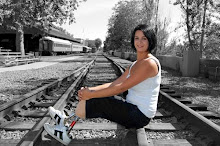
The Pacific Coast of Northern California is where the salt and swell meets the rugged outline of the western United States. Where the salubrious air is continuously cycled by winds brought in by currents off shore. Here is the home of thousands of creatures that each play their role in sustaining a complex ecosystem and where thousands more flock to treasure and learn about them.
Most Californians are spoiled by the convenient local of such places as Mendocino and Fort Bragg; although, some could see these destinations as off the grid when they aren’t able to enjoy the same resources. A person who has lived their life learning how to live with a physical disability knows all too well the learning never really stops. Here we will look at a few ways someone who isn’t fully physically able can turn a potentially intimidating weekend camping trip into a cleansing and rejuvenating experience.
In order to take full advantage of this process it is beneficial to obtain a disabled discount pass from the CA.gov. This lifetime pass, which costs $3.50, grants the holder a 50 percent discount at all state parks including day use parking, camping, and boating fees. Although this pass offers great incentive keep in mind it is not required in order to reserve an accessible camp site.
Now the first step in preparing for an adventure is choosing and securing a location. Just a few short miles north of the coastal town of Fort Bragg, Calif. is MacKerricher State Park. This park has a list of amenities available for use including paved camp sites, accessible bathrooms and showers. The scenic trails there are board walked and provide breathtaking views perfect for whale and seal watching. One of the most attractive assets of this state park is the availability of a beach wheelchair that is equipped for easy access to sandy beaches. Keep in mind; in order to use this wheelchair an  assistant is needed. There is no way to propel the chair while sitting in it; it can only be pushed from behind.
assistant is needed. There is no way to propel the chair while sitting in it; it can only be pushed from behind.
All camping reservations need to be made online, through reserveamerica.com, but it is highly recommended the park be contacted before arrival not only to secure the use of the beach wheelchair but to inquire about any changes made to accessible features that might not have been updated on individual park websites (this is true for any park).
Now that a plan has been set into motion and a destination is secured it is time to start preparing. The best way to go about this step is to make lists. Make one for gear and supplies such as sleeping bags and flash lights. If your personal inventory is a little short a good idea is to check local thrift stores or supplies can also be borrowed from a generous friend. Next, make a list for clothing items. Coastal camping is always prone to unpredictable weather. Be sure to be prepared to dress in layers and always pack a hat and gloves. Finally the most important list to make is the food list.  If meals are planned out thoughtfully camping meals could easily be better than the everyday meals prepared at home. Don’t overlook small things such as salt & pepper. Making lists and packing according to them will help reduce the risk of forgotten items and in turn reduce overall anxiety.
If meals are planned out thoughtfully camping meals could easily be better than the everyday meals prepared at home. Don’t overlook small things such as salt & pepper. Making lists and packing according to them will help reduce the risk of forgotten items and in turn reduce overall anxiety.
One last tip to preparing for a weekend getaway is to take the time to clean and organize your home so that upon returning the transition to reality is far less overwhelming.
Given the nature of an individual’s disability the only way to truly figure out what one is capable of is to get out there and try. Be sure to ask questions, and don’t be afraid to ask for help. With proper preparation, some organization, and a little practice any camper can become a pro and return a little spontaneity into their lives.

No comments:
Post a Comment